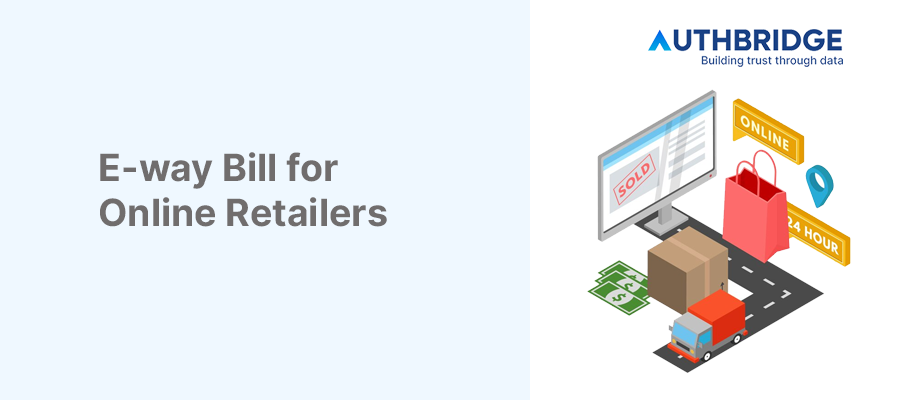Navigating The E-way Bill System: A Comprehensive Guide For Online Retailers

One of its key components, the e-way bill (EWB) system, plays a central role in ensuring transparency, efficiency, and compliance for the movement of goods. For online retailers, understanding and adhering to EWB regulations is crucial for smooth business operations and avoiding potential penalties. This comprehensive guide explores the E-way bill system in the context of online retail, drawing data and statistics from official verified sources like the Central Board of Indirect Taxes and Customs (CBIC) website (https://www.cbic.gov.in/) and industry reports.
Understanding E-way Bills:
- An E-way bill is an electronic document required for the movement of goods exceeding ₹50,000 in value within India. It is generated through the e-way bill portal (https://ewaybillgst.gov.in/).
- The EWB captures details about the consignment, including:
- Supplier (online retailer) information
- Recipient (customer) information
- Transporter details (logistics company)
- Description of goods
- HSN code (Harmonized System Nomenclature code)
- Value of goods
E-way Bills and Online Retailers:
- When is an EWB required?
- Online retailers need to generate an EWB whenever they supply goods exceeding ₹50,000 in value, irrespective of the delivery mode (self-delivery, courier, or third-party logistics providers).
- Even if the customer picks up the goods from the seller's warehouse, an EWB is still mandatory if the value exceeds ₹50,000.
- Responsibilities of online retailers:
- Registering on the e-way bill portal
- Generating EWBs for all taxable supplies exceeding ₹50,000
- Canceling EWBs in case of order cancellations or returns
- Updating EWBs in case of changes in the consignment details
- Maintaining proper records of EWBs for six years
According to a report by Statista, the Indian e-commerce market is expected to reach a value of USD 350 billion by 2030, reflecting its significant growth potential and the increasing importance of understanding the EWB system for online retailers. As of December 2023, the e-way bill portal statistics show over 14.5 billion EWBs generated, highlighting the system's widespread adoption across diverse sectors, including online retail.
Table 1: EWB Applicability for Online Retailers
Scenario | EWB Required? |
Order value exceeds ₹50,000 | Yes |
Order value below ₹50,000 | No |
Customer picks up goods from seller's warehouse (value exceeds ₹50,000) | Yes |
Customer picks up goods from seller's warehouse (value below ₹50,000) | No |
Benefits of E-way Bills for Online Retailers:
- Transparency and Traceability: EWBs ensure a clear audit trail for the movement of goods, facilitating transparency in the supply chain and addressing concerns about counterfeit products or tax evasion.
- Reduced Paperwork: Replacing paper-based invoices with EWBs simplifies documentation processes, minimizing administrative burdens and associated costs.
- Faster Delivery Processes: Efficient EWB management can expedite the movement of goods through checkpoints, potentially improving delivery speeds and customer satisfaction.
Challenges and Solutions for Online Retailers:
- Managing EWBs for large order volumes:
- Solution: Explore robust EWB management software or integrate EWB functionalities with existing order management systems to automate generation and streamline data entry.
- Ensuring proper EWB generation for third-party logistics:
- Solution: Establish clear communication and procedures with logistics partners to ensure timely EWB generation and information sharing for all orders exceeding ₹50,000.
- Staying informed about updates:
- Solution: Regularly monitor official CBIC channels for updates and changes in EWB regulations to ensure ongoing compliance.
Compliance Tips for Online Retailers:
- Accurate Information: Ensure that all information entered in the EWB is accurate and matches the product details, invoice, and other relevant documents.
- Timely Generation: Generate EWBs well before the movement of goods to avoid delays and potential penalties.
- Record Maintenance: Maintain proper electronic records of all generated EWBs for a minimum period of six years as required by GST regulations.
- Regular Updates: Keep your registration details and GST information updated on the e-way bill portal to ensure smooth functionality.
- Seek Professional Guidance: When dealing with complex EWB scenarios or encountering uncertainties, consult with a tax professional for tailored advice.
Technology Solutions for E-way Bill Management:
- E-way Bill Management Software:
- Dedicated software offers features specific to EWB requirements, including:
- Bulk EWB generation
- Data validation tools to minimize errors
- Integration with existing order management or accounting systems
- API Integration:
- Application Programming Interfaces (APIs) allow connecting existing systems with the e-way bill portal, enabling:
- Automated EWB generation based on order data
- Real-time updates on EWB status within existing systems
Table 3: Technology Solutions for E-way Bill Management
Solution | Description | Benefits |
E-way Bill Management Software | Dedicated software with features for EWB generation, validation, and integration. | Improved efficiency, reduced errors, simplified data management |
API Integration | Connects existing systems with the e-way bill portal. | Automated EWB generation, real-time status updates, streamlined data exchange |
Conclusion:
By understanding EWB requirements and leveraging technology solutions, online retailers can effectively navigate the e-way bill system in the Indian GST regime. This ensures compliance, improves operational efficiency, and enhances transparency within the supply chain. As the e-commerce landscape continues to evolve, staying informed and adapting to technological advancements will be crucial for online retailers to thrive in this dynamic environment.
Disclaimer: The information provided in this blog post is intended for general informational purposes only and should not be construed as professional legal or tax advice. It is recommended to consult with a qualified tax professional for specific guidance on your business's E-way bill requirements and compliance strategies.
Category

Abhinandan Banerjee
(Associate Manager - Marketing)
Abhinandan is a dynamic Product and Content Marketer, boasting over seven years of experience in crafting impactful marketing strategies across diverse environments. Known for his strategic insights, he propels digital growth and boosts brand visibility by transforming complex ideas into compelling content that inspires action.



